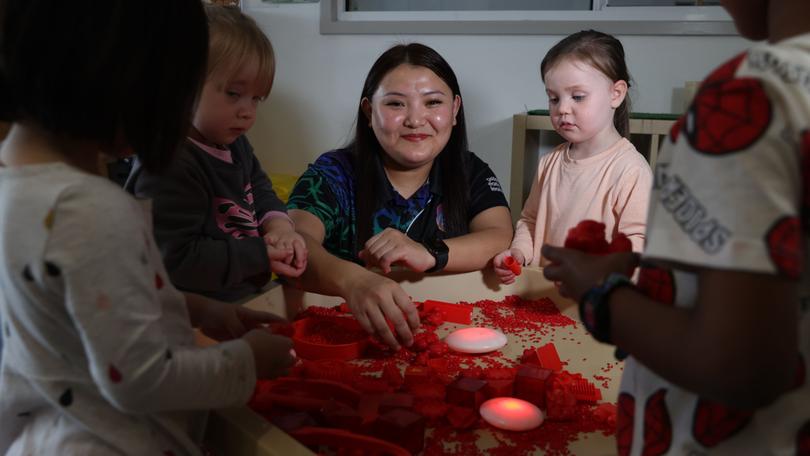Free and cheaper childcare for all families in expert blueprint
All children under five would be able to go to childcare for at least three days a week by 2036 no matter where they live or what their parents do under a new plan for universal care.

All children under five would be able to go to childcare for at least three days a week by 2036 no matter where they live or what their parents do under a new plan for universal care.
The Productivity Commission says moves towards a universal system need to start next year, with free care offered to low-income families from 2026.
In a landmark report released on Wednesday morning, the commission makes 56 recommendations to dramatically overhaul the early childhood education and care (ECEC) system with the aim of giving every child access by the end of the decade.
Sign up to The Nightly's newsletters.
Get the first look at the digital newspaper, curated daily stories and breaking headlines delivered to your inbox.
By continuing you agree to our Terms and Privacy Policy.It says doing so would give better education to more children from low- and middle-income families who are not currently attending childcare, and increase the number of parents, mainly mothers, who are in the workforce.
The report recommends lifting the childcare subsidy to 100 per cent from 2026 for families earning up to $80,000 a year.
Families on up to $140,000 a year with multiple children aged under five in childcare would also be fully subsidised.
It estimates half of all families would be eligible for subsidies of more than 90 per cent and nearly four in five families would have 75 per cent of their fees covered.
This is expected to lead to a 10 per cent increase in attendance.
The commission has also added its voice to the many recommendations to scrap the activity test for receiving subsidies, saying this needs to happen as soon as possible.
“Children experiencing vulnerability and disadvantage benefit the most from quality early childhood education and care, but they are currently the least likely to attend,” Associate Commissioner Deborah Brennan said.
“A child’s entitlement to at least three days of ECEC a week should not depend on how much their parents work.”
The commissioners recognise their recommendations come at a significant impost, saying the cost of subsidies would increase by 37 per cent to about $17.4 billion a year plus more money needed to deal with availability and inclusivity.
“The benefits of these investments will take time to be realised and are difficult to quantify – but focussing on children likely to benefit most means such investment will, in time, lead to net community benefit,” the report states.
It also recommends expanding access to outside school hours care, the government funding the establishment of services in areas with persistently “thin” markets or complex needs, and a new inclusion fund to improve access by children with higher needs that incorporated the early intervention foundational supports under the NDIS changes.
Education Minister Jason Clare said the report was a significant piece of the Government’s considerations about how it would move towards a universal system.
“The report makes clear that more needs to be done to make sure children from poor families, who would benefit the most from high quality early education, are not missing out,” he said.
Originally published on The West Australian

